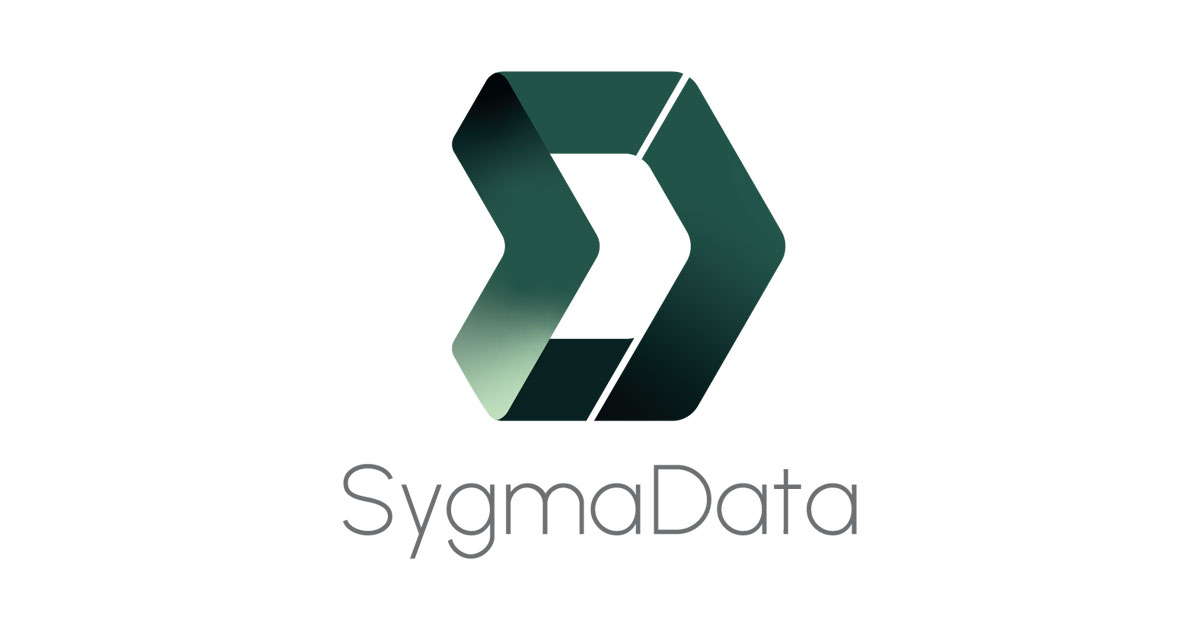Download the PDF document here: cloud act vs sovereignty
Cloud Act vs Sovereignty
What to think about the cloud act in regards of sovereignty for companies outside US?
Explore the implications of the U.S. CLOUD Act on data sovereignty for companies outside the U.S. Understand legal conflicts, GDPR challenges, and strategic responses in an evolving global data governance landscape.
Table of Contents
Implications for Non-US Companies. 5
Legal Conflicts and Extraterritorial Reach. 5
Challenges in Compliance and Trust 5
Strategic Adaptation and Partnerships. 5
Global Reactions and Adaptations. 7
Overview of the CLOUD Act Conflict 9
E-Evidence Agreement Initiatives. 9
Technological and Regulatory Impacts. 9
Legislative and Judicial Responses. 10
The Role of Data Localization. 11
Development of Regional Alternatives. 11
Risk Mitigation Strategies. 12
summary
The Clarifying Lawful Overseas Use of Data Act, commonly known as the CLOUD Act, was enacted in March 2018 to address the challenges law enforcement faces in accessing digital evidence stored internationally by U.S. technology companies. By amending the Stored Communications Act of 1986, the CLOUD Act empowers U.S. federal law enforcement to compel American companies to provide access to data irrespective of where it is physically stored, thereby intensifying scrutiny regarding data sovereignty for non-U.S. firms and raising concerns about conflicts with international data protection regulations, such as the General Data Protection Regulation (GDPR) in the European Union.[1][2][3][4]
The Act emerged from a legal conflict between Microsoft and the U.S. government, highlighting the complexities of accessing data across borders and the implications for individual privacy rights. The CLOUD Act aims to balance law enforcement interests with civil liberties by requiring foreign jurisdictions engaged in bilateral agreements to adhere to specified privacy standards. However, its extraterritorial reach has drawn significant criticism from international stakeholders, particularly within the EU, where policymakers argue it undermines local data protection laws and infringes upon national sovereignty.[5][6][7][8]
Concerns regarding the CLOUD Act are particularly acute for companies operating outside the U.S., as they must navigate a dual compliance landscape that involves both local laws and U.S. legal requirements. This dynamic poses potential legal conflicts, complicating operational strategies for businesses and heightening fears over data security and privacy for their customers. The growing apprehension has led many firms to seek alternatives to U.S. cloud service providers to ensure compliance with local regulations and enhance data sovereignty.[9][10][11]
As nations grapple with the implications of the CLOUD Act, international reactions have varied, with many jurisdictions considering legislative measures to protect their digital sovereignty. The Act’s provisions could fundamentally reshape the landscape of international data governance, raising essential questions about the balance of power between countries in the digital age and the need for cohesive frameworks to address cross-border data access while safeguarding individual rights.[12][13][14][15]
Background
The Clarifying Lawful Overseas Use of Data Act, commonly known as the CLOUD Act, was enacted in March 2018 as a response to evolving challenges in law enforcement related to digital evidence. The act primarily amends the Stored Communications Act of 1986 to enable U.S. federal law enforcement agencies to compel U.S.-based technology companies to provide access to data, regardless of whether this data is stored domestically or internationally[1][2]. This legislative measure emerged from a conflict between Microsoft and the U.S. government, spotlighting the complexities of accessing data held abroad[3].
The CLOUD Act was included in the Consolidated Appropriations Act, 2018, and was signed into law on March 23, 2018. Its provisions allow U.S. authorities to utilize court orders or subpoenas to demand information necessary for the prevention, detection, investigation, or prosecution of serious crimes, including terrorism, irrespective of the data’s geographical location[4][2]. The act requires that any foreign jurisdiction involved in bilateral agreements must demonstrate adherence to standards concerning privacy and civil liberties, thus attempting to balance the interests of law enforcement with individual rights[4][5].
Internationally, the CLOUD Act has raised concerns regarding its potential conflict with existing data protection regulations, such as the General Data Protection Regulation (GDPR) in Europe. For instance, the European Data Protection Supervisor has voiced apprehensions about the implications of the CLOUD Act for data sovereignty, leading to calls for heightened scrutiny of data storage practices by entities operating under U.S. jurisdiction[2][6]. The extraterritorial reach of the CLOUD Act poses significant challenges for companies outside the U.S., compelling them to navigate a complex landscape where U.S. legal requirements may supersede local laws, thus redefining traditional notions of sovereignty in the digital realm[5][3].
Implications for Non-US Companies
The CLOUD Act has significant implications for non-US companies, particularly those operating within the European Union (EU) and other jurisdictions that prioritize data protection and privacy. As US authorities gain the ability to access data stored globally by US-based service providers, concerns arise regarding the security of EU residents’ data and the potential conflicts with established regulations, such as the General Data Protection Regulation (GDPR)[7][8].
Legal Conflicts and Extraterritorial Reach
The extraterritorial claims of the CLOUD Act pose challenges for non-US companies, as it allows US authorities to request access to data without necessarily adhering to the legal frameworks of the countries where the data is located[9]. This unilateral approach is perceived as a violation of sovereignty and may lead to legal conflicts between US and EU laws. The European Data Protection Committee has expressed skepticism about the effectiveness of the CLOUD Act in safeguarding the rights of EU citizens, indicating that the legal recourse available to data providers may be limited and subjective[9].
Challenges in Compliance and Trust
Non-US companies face a dual challenge of navigating compliance with both local laws and the implications of the CLOUD Act. The act does not grant new legal authority to US law enforcement but preserves existing frameworks, meaning that compliance remains complex[8]. Companies must implement robust technical and organizational measures to minimize risks associated with potential data access by US authorities. This includes conducting thorough risk assessments and proactively communicating jurisdiction risks to customers[10]. Additionally, the perceived risk of US authorities accessing sensitive company data has led many firms to explore alternatives to US cloud providers, seeking out regional partners to enhance data security and comply with local regulations[10][8].
Strategic Adaptation and Partnerships
To adapt to these challenges, non-US companies are encouraged to adopt a proactive strategy. Establishing dedicated teams that include legal, security, and IT stakeholders can help track regulatory changes and oversee compliance initiatives[10]. Furthermore, forming partnerships with local providers can facilitate adherence to in-country data mandates and provide expert guidance on navigating the complex legal landscape[10]. The potential for executive agreements between the US and foreign governments may also offer a framework for addressing conflicts of law, yet the effectiveness of these arrangements remains uncertain and may not fully alleviate concerns related to data sovereignty[9].
International Reactions
Geopolitical Context
The emergence of the US CLOUD Act has elicited significant reactions from countries around the globe, particularly in the European Union (EU). The Act’s extraterritorial reach raises critical concerns regarding data sovereignty, prompting discussions about the implications for international relations in an increasingly competitive geopolitical landscape. The ongoing power struggle among major global players, including the US, China, and Russia, underscores the urgency for nations to protect their digital sovereignty amid these dynamics[11][12].
European Union Responses
European policymakers have expressed strong opposition to the CLOUD Act, viewing it as a potential threat to the fundamental principles of the General Data Protection Regulation (GDPR). The Act allows the US government to access data stored in Europe, which raises alarms among EU politicians and civil liberty groups about the implications for individual privacy rights[13][14]. EU Commission President Ursula von der Leyen has emphasized the need for a distinct regulatory approach to artificial intelligence and digital infrastructure that prioritizes European interests and sovereignty over reliance on US technology giants[11][9].
Regulatory Strategies
In response to the challenges posed by the CLOUD Act, European companies are urged to adopt proactive measures to bolster their data protection strategies. The potential collapse of transatlantic data protection frameworks, such as the
Transatlantic Data Privacy Framework (TADPF), could lead to significant operational disruptions and compliance risks for EU businesses[15]. Companies are encouraged to explore European and open-source alternatives to mitigate their dependence on US cloud services, thereby enhancing their data sovereignty and aligning with GDPR standards[16].
Global Reactions and Adaptations
Beyond Europe, countries are also grappling with the implications of the CLOUD Act. Some jurisdictions have responded with unilateral measures aimed at localizing data within their borders, while others are exploring bilateral agreements that incorporate privacy safeguards to balance cooperation with the need to protect their citizens’ data[17][16]. The challenges posed by the CLOUD Act highlight the complexities of international data governance in an era where technological advancements intersect with national sovereignty and human rights considerations[12][17].
Case Studies
Overview of the CLOUD Act Conflict
The CLOUD Act (Clarifying Lawful Overseas Use of Data Act) has sparked significant debate regarding the intersection of privacy and sovereignty, especially for companies operating outside the United States. The Act primarily addresses the conditions under which U.S. law enforcement can access data stored by American service providers, even when that data is located in foreign jurisdictions. This has raised questions about which government has the authority to govern such access, placing service providers in a precarious position as they navigate potentially conflicting legal obligations across different regions[18][19].
E-Evidence Agreement Initiatives
Building on experiences in the United Kingdom, both the EU and the U.S. are exploring ways to manage the high volume of cross-border data requests necessitated by the CLOUD Act. A European Commission study highlights that electronic evidence is relevant in approximately 85% of criminal investigations, indicating the critical need for a streamlined approach to handle data requests from service providers located outside a jurisdiction. This could involve establishing a unified EU body to oversee these requests and develop standardized mechanisms for compliance and reimbursement for service providers[20].
Technological and Regulatory Impacts
The implications of the CLOUD Act extend beyond legalities to include significant technological challenges for companies. Many organizations have been forced to reconsider their cloud strategies, with some opting to repatriate data to maintain control and ensure compliance with national data laws. This trend reflects a growing apprehension regarding data localization requirements and their potential to inhibit innovation within the European market, particularly as U.S. companies dominate the European cloud landscape[10][4].
Moreover, as businesses encounter stringent national data regulations, there is a burgeoning need for tailored solutions. The best-performing companies are transitioning from reactive to proactive strategies by forming dedicated sovereignty teams, partnering with local providers, and adopting sovereign infrastructure to comply with in-country data mandates[17][13].
Legislative and Judicial Responses
The CLOUD Act has also provoked legislative and judicial scrutiny in the U.S. While the Department of Justice argued that the Second Circuit’s ruling limited law enforcement’s ability to access crucial data, various stakeholders—including technology firms, academia, and civil liberties organizations—have voiced their concerns regarding the implications for privacy and civil rights[21]. This broad range of input highlights the complex dynamics at play, with the potential for significant repercussions on companies’ market reputations and operational strategies if these issues are not addressed adequately[13].
Future Considerations
The implications of the CLOUD Act extend beyond immediate legal frameworks, shaping the future landscape of data sovereignty and privacy for companies outside the United States. As technological advancements continue to evolve, businesses must navigate an increasingly complex environment marked by cross-border data flows and varying legal standards.
The Role of Data Localization
One prominent trend is the anticipated rise in data localization laws, as countries aim to retain control over data within their territories. This reflects a growing recognition of the need for national sovereignty over digital assets, particularly in light of the CLOUD Act’s provisions, which can lead to extraterritorial data access by U.S. authorities.[9] As more jurisdictions implement such regulations, companies may face challenges in managing compliance and operational strategies, necessitating a reassessment of their data handling practices.
Development of Regional Alternatives
In response to the reliance on U.S. cloud services, initiatives like GAIA-X in Europe aim to establish regional or national cloud alternatives that align with local regulations and privacy standards.[22] However, the success of these efforts remains uncertain, as competition with established hyperscalers poses significant challenges. Companies looking to transition to these alternatives must conduct thorough assessments of potential providers to ensure they meet the necessary technical and compliance requirements.[15]
Ongoing Legal Challenges
The CLOUD Act itself faces scrutiny regarding its constitutionality and implications for privacy rights, particularly concerning the Fourth Amendment protections against unreasonable searches.[13] Ongoing legal challenges may lead to adjustments in the Act’s provisions, influencing how data is accessed and shared across borders. As businesses engage with the complexities introduced by the Act, they must stay informed about potential legal shifts that could impact their operations and compliance obligations.
Risk Mitigation Strategies
For companies utilizing U.S. cloud services, implementing robust technical and organizational measures will be essential for minimizing risk. This includes conducting thorough risk assessments, ensuring transparency with customers regarding jurisdictional risks, and carefully selecting providers that align with their compliance needs.[9][13] Additionally, as data protection regulations become more stringent globally, businesses should proactively adapt their strategies to mitigate the potential reputational and operational impacts of non-compliance.
References
[1]: Cloud Act: What is it? – Link11
[3]: Cloud Act and GDPR : implications for data protection – Closd
[4]: The CLOUD Act and Transatlantic Trust – CSIS
[5]: Understanding the U.S. Cloud Act: Impact on Compliance … – archTIS
[6]: A Preliminary Analysis of Bill C-2 and Canada’s Potential Data …
[7]: US based cloud services should be reevaluated due to the … – Reddit
[8]: CLOUD Act: what is it, and how does it affect cybersecurity?
[9]: Why the US Cloud Act is a problem and risk for … – Xpert.Digital
[10]: Data Sovereignty Trends: What Businesses Need to Know in 2025
[11]: For digital sovereignty and EU security, the first step is to neutralise …
[12]: Reality and marketing in the Sovereign Cloud
[13]: Demystifying the US CLOUD Act – Kiteworks
[14]: How the CLOUD-Act works in data storage in Europe | By our experts
[15]: CLOUD Act: European companies must act now – Mailbox.org
[16]: The U.S. CLOUD Act and Canadian Businesses: What IT Leaders …
[17]: Untapping the Full Potential of CLOUD Act Agreements – CSIS
[18]: CLOUD Act Enforcement – Harvard Law School The Case Studies
[19]: Cross-Border Data Sharing Under the CLOUD Act | Congress.gov
[20]: The U.K.-U.S. Data Access Agreement – Lawfare
[21]: The CLOUD Act: Old Laws and New Problems
[22]: First Insights Into the U.S.-U.K. CLOUD Act Agreement – Lawfare



